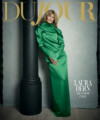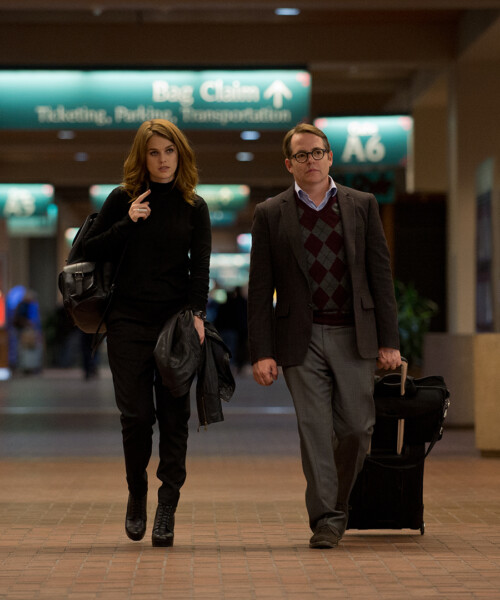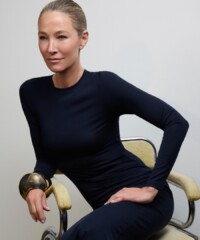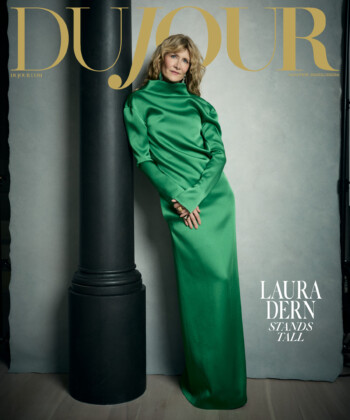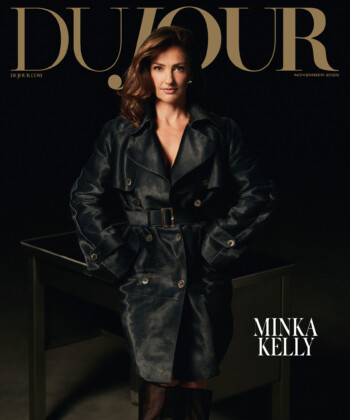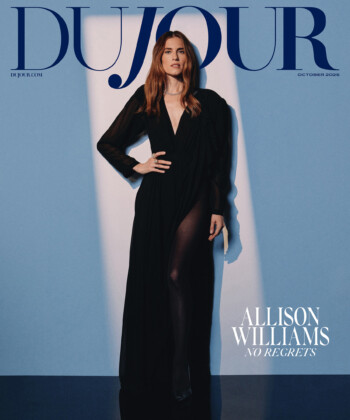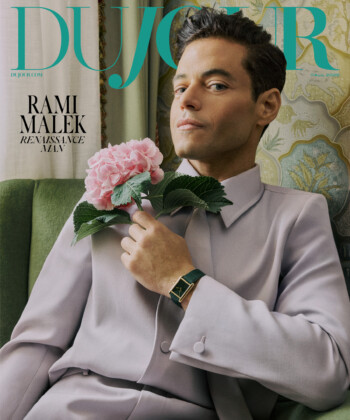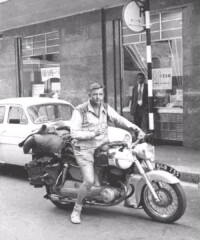What happens when Ferris Bueller and Star Trek’s Carol are delayed at an Albuquerque airport during a layover? A Dirty Weekend, of course. The comedy, which gets its name from British slang meaning when two (usually) unmarried people escape for a debaucherous weekend, premiered at the Tribeca Film Festival and hits the big screen on September 4.
Writer/director Neil LaBute’s story follows Les (played by Broderick), a temperamental suburban husband, and his co-worker Natalie (Alice Eve), as they try to uncover the hazy details of a booze-soaked sexual experience. During their adventure, Les and Natalie unexpectedly discover more about each other—and themselves. Peppered with bits of comic relief, LaBute’s dialogue-heavy script also raises questions about buried sexual appetites. Here, the acclaimed filmmaker, known for his work on In the Company of Men and The Shape of Things, shares some of his own dirty secrets, including what it was like filming with the actors, his writing process and sexual politics.
How did the idea for the script come to fruition?
I heard the English phrase “dirty weekend.” I thought it sounded like a great title and built a story around that. I loved the idea of featuring a couple that was not linked romantically. While they’re on a journey and there’s a lot of sexuality in the piece, it’s not really about whether they get together in the end. The storyline is a little different—it still had hallmarks of things I had worked on before like dealing with sexual politics, but didn’t have two people falling in love.

Matthew Broderick and Alice Eve in Dirty Weekend
The movie shines a spotlight on the idea of suppressed sexual desires. Was there a message you wanted to leave audiences with?
The one thing I don’t do very often, if at all, is write thematically. Those things creep in, but I tend not to start there. There’s a moment when Alice’s character finally tells Matthew’s character you only live life once and should go after whatever it is that you are or interests you. Don’t hide away your feelings and live a life of frustration. His character discovers he doesn’t even remember what happened so that makes it more difficult, but her encouragement is to be who you are rather than live a life of regret. Thematically, that’s not a bad message to leave behind.
You’re notorious for broaching subjects like sexuality, sexism and race in your movies.
Weirdly, themes seem to erupt in them, but I hardly ever start out worrying about that. I’m more interested in the journey of people finding themselves in a place they didn’t expect to be in—in this case, in a city they never expected to go back to. Being there forces them to go on a journey of discovery, which is complicated by Les not remembering what happened. For a lot of people, sexuality is often whispered about. People put a veil of secrecy around it that causes us to approach it in a way that can breed fear.
Did you write the role with Matthew in mind? Do you ever write for an actor?
Not at all. Matthew was someone I had never worked with. We had run into each other in New York on the street and talked shop. This presented itself as something to do together. I only knew his work and of him before that. I had previously made a movie with Alice and we were looking for something else to do. She and I both thought this character was very different and so it seemed like a fun, natural thing to do.

Writer/director Neil LaBute with Alice Eve and Matthew Broderick
What was it like working with Alice and Matthew on set?
This movie was interesting because we were all living together in a city that wasn’t home. When you’re living out of a suitcase, there’s more of a ‘let’s go get a meal together’ feel. Matthew and Alice play characters who don’t know each other very well even though they work in the same office. They had to create a quick, symbiotic relationship as actors because they had to rely on each other so much. They’re both separately or together in almost every frame so they had day-after-day of shooting and then would go to dinner and learn the lines for the next day. It was a very quick marriage.
Dirty Weekend wasn’t as dirty as the title suggests.
I’ve made movies and plays that are pretty coarse in terms of sexuality. I liked the idea of something that was as old-fashioned as the character that Matthew played. I think a lot of people still live their lives in that way. We’re not all hip, urban city dwellers and I think that I wanted to fashion the movie around that character’s life and experience. Even the score we used, it was like a throwback to a ‘60s movie. Having already done things that were much coarser, I thought it’d be interesting to do something that felt gentler overall.

















